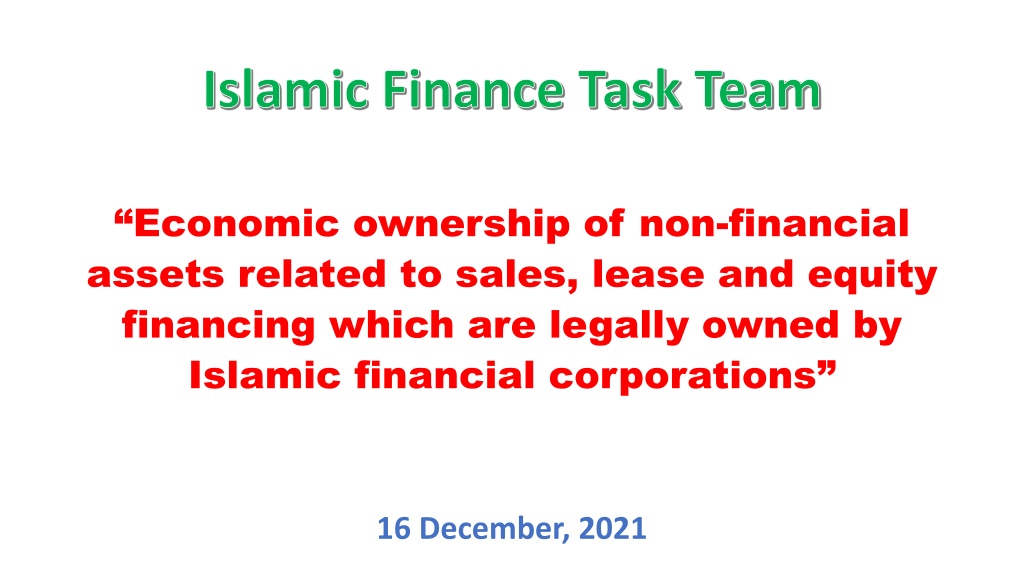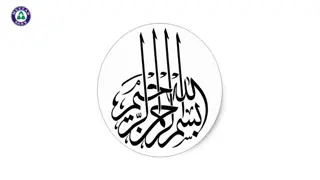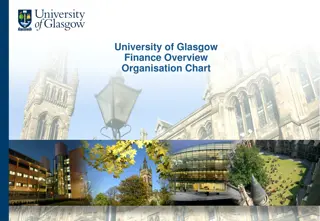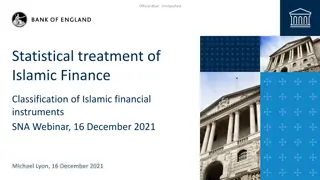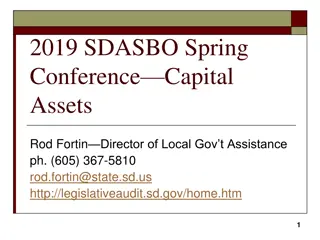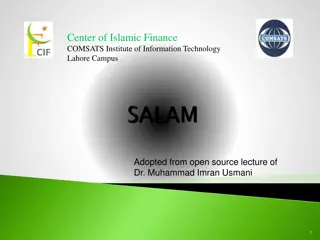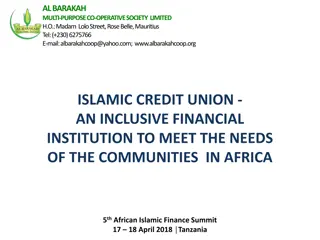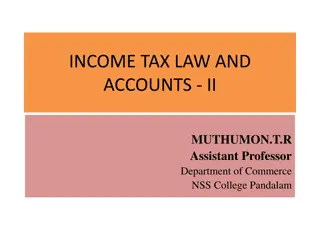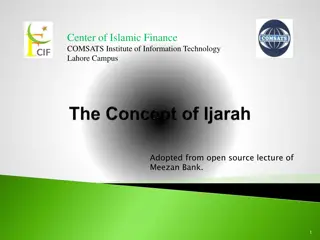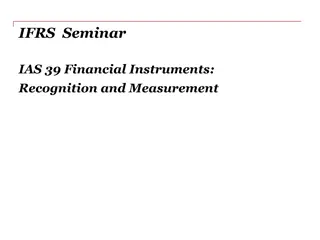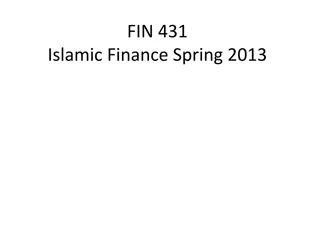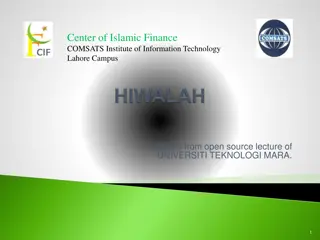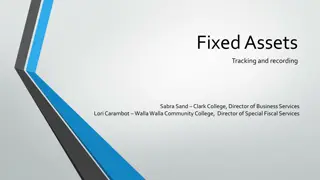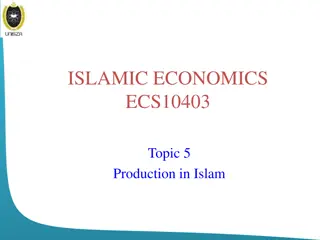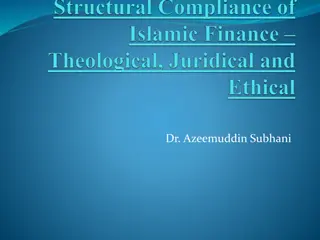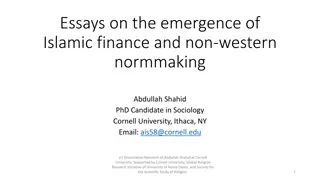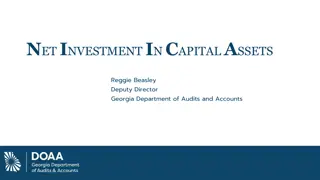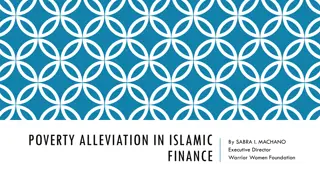Islamic Finance Task Team on Economic Ownership of Non-Financial Assets
This task team focuses on determining the economic ownership of non-financial assets in Islamic finance practices like sales, lease, and equity financing. Recommendations are being developed to address issues related to economic ownership, including recording assets on balance sheets and handling default scenarios. The team aims to align with Islamic finance accounting frameworks to ensure proper ownership identification.
Uploaded on Sep 24, 2024 | 0 Views
Download Presentation

Please find below an Image/Link to download the presentation.
The content on the website is provided AS IS for your information and personal use only. It may not be sold, licensed, or shared on other websites without obtaining consent from the author. Download presentation by click this link. If you encounter any issues during the download, it is possible that the publisher has removed the file from their server.
E N D
Presentation Transcript
Islamic Finance Task Team Economic ownership of non-financial assets related to sales, lease and equity financing which are legally owned by Islamic financial corporations 16 December, 2021
Agenda of the Topic Scope of the Research Structure of Islamic Finance Issues for Considerations Recommendations Questions for Consultation 2
Scope of the Research The scope of the work of the sub-task team is to develop recommendations for determining the economic ownership of non-financial assets related to the sales, leasing and equity financing arrangements which are handled by Islamic financial corporations. The concept of economic ownership as articulated in the SNA and external sector statistics has been applied when developing these recommendations. 3
Instruments of Islamic Finance Funding Financing Economic Ownership Sales Equity Leases Murabaha Bai Muazzal Bai Salam Istisna Tawarruq Qard, Wadia, Amanah Mudaraba Qard Hasan Participation Term Certificates Profit and Loss Sharing Certificates Sukuk Sales Deposits Leases Ijara/HPSM Musharakah Mudarabah Equity Market Client Financial Assets/Liab IFI Non-financial Assets
Issues for Considerations Economic ownership of any non-financial assets and changes in economic ownership are fundamental to the compilation of the macro-economic statistics. Given that Islamic financial standards recommend recording non-financial assets on the balance sheets of Islamic financial corporations, there is also need to determine the economic ownership of these non-financial assets when clients default on the payment on them in financing arrangements such as Murabaha and Bai Muajjal 5
Issues for Considerations Islamic finance accounting frameworks such as IFSB s DFS recommend recording the ownership of these underlying non-financial assets in the balance sheets of the IFIs even though they may not actually use the assets in their productive activities. In principle, an Islamic bank must have legal ownership of the underlying assets during which period the bank incurs all the risks and rewards of holding the assets. 6
Issues for Considerations After reconciliation, the sub-task team has selected two issues as mentioned below for further research: Issue 3.1 :Treatment of economic ownership of non- financial assets in financing arrangements such as Murabaha, Bai Muajjal, Mudarabah, Diminishing Musharakah, Bai Salam, Istisna a, Operating Ijarah, Financing Ijarah and Tawarruq Issue 3.2: Economic ownership of non-financial assets when clients default on paying for these assets in financing arrangements such as Murabaha and Bai Muajjal 7
Recommendations for Issue 3.1 3.1.1 It is possible that Islamic financial corporations can establish a separate institutional unit (often, in partnership with other units) which will then be the economic owner of the underlying non-financial assets. Sometimes this may work as investment agent of IFI. One example is real estate investment whereby Islamic financial corporations can co- invest in a venture with units to develop properties. The SS 46 of AAOIFI supports this option. 3.1.2 If no separate institutional units are set up, Islamic financial corporations can act as the facilitators by transferring the economic ownership of the non-financial assets from the seller to the client so that they will not be classified as the economic owner of the non- financial assets. 8
Recommendations for Issue 3.1 3.1.3 The ownership for very short period of non-financial assets by Islamic IFIs could be considered as a form of constructive of physical possession and should not be considered as economic ownership. 3.1.4 The sub-task team also recommends that the economic owners of the underlying non-financial assets should be considered the ultimate purchasers of these assets that they obtain through IFIs. This is because they are entitled to claim the benefits or assume the risks associated with the use of these assets. 9
Recommendations for Issue 3.1 & 3.2 3.1.5 The time of recording of the acquisition of the underlying non- financial assets is the moment when the ownership of these assets changes hands. When change of ownership is not obvious, the moment of entering in the books of the transaction partners may be a good indication and, failing that, the moment when physical possession and control is acquired. 3.2.1 The sub-task team recommends that the client will still be considered as the economic owner of the underlying nonfinancial assets as the default on payment is essentially a default on a financial payment. However, it may be possible for the Islamic financial corporation to confiscate the underlying assets, if feasible. 10
Questions for Consultation For issue 3.1, Do you agree that Islamic financial corporations a) Can set up separate institutional units which will then be the economic owners of the underlying non-financial assets for Islamic financial arrangement, and/or b) Can facilitate transferring the economic ownership of these non- financial assets from the sellers to clients? For issue 3.2, Do you agree that clients who default on payment for the underlying non-financial assets in Murabaha and Bai Muajjal are still the economic owners of these assets? 11
